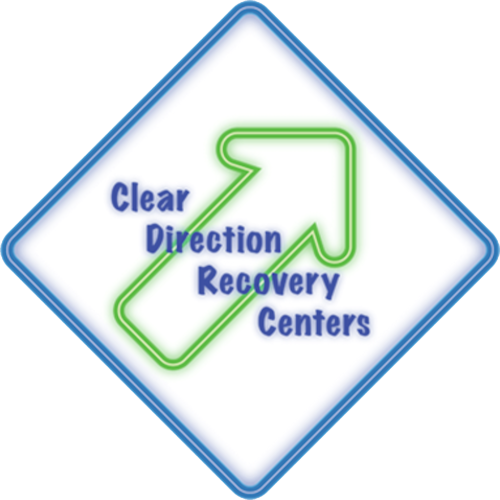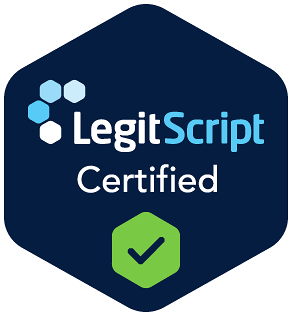Quality Alcohol and Drug Rehab in New Jersey
Our Treatment Programs
Partial Hospitalization Programs (PHP) bridge the gap between outpatient care and inpatient treatment. We aim to guide clients toward lasting recovery and a healthier future by providing the necessary resources for regaining control over their lives.
Intensive outpatient program (IOP) provides high-quality care while allowing individuals to maintain their daily commitments. Our IOP equips individuals with the necessary tools and resources to overcome addiction, build resilience, and sustain long-term recovery.
Our Medication-Assisted Treatment (MAT) program combines medication and behavioral therapy to address the complexities of drug and alcohol addiction. This highly effective approach addresses the psychological aspects of addiction, helps individuals develop coping strategies, and supports long-term recovery.
Our outpatient program is designed to support individuals who have completed more intensive treatment programs. It facilitates a smooth transition into outpatient care while ensuring continued progress in recovery.
Our Treatment Programs
Substance Abuse Issues We Treat
We are a leading rehab center in Marlton, New Jersey, providing outpatient addiction services to individuals 18 and older. Using a combination of behavioral therapy, holistic treatments, and medication, our clinical team creates a personalized treatment plan for each individual. We’re dedicated to using evidence-based treatment and providing support to help others achieve lifelong recovery.
Substance use disorders we treat include:
- Alcohol Addiction
- Heroin Addiction
- Prescription Drug Addiction
- Cocaine Addiction
- Opioid Addiction
- Meth Addiction
Alcohol addiction can have severe physical, psychological, and social impacts on individuals and their relationships. Despite negative consequences, people with alcohol use disorder have strong urges to drink and have difficulty trying to quit on their own. The most effective treatment plans are often individualized, considering the unique needs and circumstances of each person seeking help for alcohol addiction.
Heroin addiction is a serious condition characterized by a compulsive need to use heroin. Individuals with heroin addiction often experience intense cravings and a loss of control over their drug use. However, prolonged heroin use can have devastating effects on physical and mental health, as well as personal and social well-being.
Prescription drug addiction refers to the compulsive and harmful misuse of prescription medications. When misused, they can produce euphoria, sedation, or increased energy, leading to addiction. There are various treatment options available for prescription drug addiction.
Cocaine addiction is a powerful stimulant use disorder characterized by a compulsive need to seek and use cocaine despite harmful consequences. At Clear Direction, outpatient cocaine addiction treatment provides structured therapy, relapse prevention planning, and support systems while allowing clients to maintain work, school, or family responsibilities.
Opioid addiction is a chronic condition marked by a physical and psychological dependence on prescription painkillers, synthetic opioids like fentanyl, or illicit drugs such as heroin. Clear Direction offers outpatient opioid addiction treatment that combines evidence-based therapy, medication-assisted treatment when appropriate, and skill-building to help clients manage cravings and rebuild their lives without disrupting their daily routines.
Methamphetamine addiction is a severe stimulant disorder that causes compulsive drug-seeking and use. Outpatient meth addiction treatment at Clear Direction offers flexible scheduling, counseling, and relapse prevention strategies so clients can pursue recovery while continuing to meet personal and professional commitments.

Heroin Addiction Treatment
Heroin addiction is a serious condition characterized by a compulsive need to use heroin. Individuals with heroin addiction often experience intense cravings and a loss of control over their drug use. However, prolonged heroin use can have devastating effects on physical and mental health, as well as personal and social well-being.

Prescription Drug Addiction Treatment
Prescription drug addiction refers to the compulsive and harmful misuse of prescription medications. When misused, they can produce euphoria, sedation, or increased energy, leading to addiction. There are various treatment options available for prescription drug addiction.

Cocaine Addiction Treatment
Cocaine addiction is a powerful stimulant use disorder characterized by a compulsive need to seek and use cocaine despite harmful consequences. At Clear Directions Recovery, outpatient cocaine addiction treatment provides structured therapy, relapse prevention planning, and support systems while allowing clients to maintain work, school, or family responsibilities.

Meth Addiction Treatment
Methamphetamine addiction is a severe stimulant disorder that causes compulsive drug-seeking and use. Outpatient meth addiction treatment at Clear Directions Recovery offers flexible scheduling, counseling, and relapse prevention strategies so clients can pursue recovery while continuing to meet personal and professional commitments.
Therapy Options
The therapeutic component of addiction treatment helps restore and strengthen the mind. Individuals learn coping strategies and address the underlying causes of their drug or alcohol problems. We offer different types of therapy to provide well-rounded support.

Individual therapy is one-on-one counseling sessions with a therapist to explore thoughts, emotions, and challenges in a safe and confidential setting. For those struggling with addiction, individual therapy helps increase self-awareness, promote positive change, and address mental health concerns in a collaborative and empathetic manner.

Group therapy is a valuable tool to help create a strong support system for individuals, including others who understand their situation. The goal of group therapy is to provide individuals with a community and facilitate growth.

Group therapy is a valuable tool to help create a strong support system for individuals, including others who understand their situation. The goal of group therapy is to provide individuals with a community and facilitate growth.
- Individual Therapy
-

Individual therapy is one-on-one counseling sessions with a therapist to explore thoughts, emotions, and challenges in a safe and confidential setting. For those struggling with addiction, individual therapy helps increase self-awareness, promote positive change, and address mental health concerns in a collaborative and empathetic manner.
- Group Therapy
-

Group therapy is a valuable tool to help create a strong support system for individuals, including others who understand their situation. The goal of group therapy is to provide individuals with a community and facilitate growth.
- Family Therapy
-

Group therapy is a valuable tool to help create a strong support system for individuals, including others who understand their situation. The goal of group therapy is to provide individuals with a community and facilitate growth.

Contact Clear Direction Today!
Why Wait? Find The Help You Need By Reaching Out To Us Today! Our Admissions Team Is Standing By.
Client Testimonials
Find out why Clear Direction clients love us! Explore our reviews to see firsthand stories of how we’ve helped individuals achieve results on their recovery journey. Our clients’ testimonials highlight the quality and the impact of our treatment services.
Latest from Clear Direction
Contact Clear Direction for Addiction Treatment
Our team at Clear Direction understands the complexities of addiction and is able to provide high-quality care in an outpatient setting. Our goal is to help those who have trouble with alcohol or drug abuse find a clear road to long-lasting sobriety. Call to learn more about how our alcohol and drug rehab in New Jersey can help you.
FAQs
You Got Questions?
We’ve Got Answers
Outpatient addiction treatment allows you to receive evidence-based care while continuing to live at home. This flexible option includes therapy, counseling, and relapse prevention strategies, making it easier to maintain work, school, and family commitments.
An IOP typically involves several therapy sessions per week for a few hours each day, while a PHP is more intensive, offering full-day treatment without overnight stays. Both provide structured care, but PHPs are ideal for individuals needing more support than an IOP can provide.
MAT combines FDA-approved medications with counseling and behavioral therapy to treat substance use disorders. It can help reduce cravings, prevent relapse, and support long-term recovery, especially for opioid or alcohol addiction.
Dual diagnosis treatment addresses both a mental health disorder and a substance use disorder at the same time. This integrated approach ensures that underlying mental health issues, such as anxiety, depression, or PTSD, are treated alongside addiction for better outcomes.
Aftercare provides ongoing support through counseling, support groups, relapse prevention planning, and accountability. It’s a crucial part of maintaining sobriety and adapting to life after treatment.
Addiction treatment programs often use therapies such as Cognitive Behavioral Therapy (CBT), Dialectical Behavior Therapy (DBT), trauma-informed therapy, group therapy, and family counseling to address the emotional and behavioral aspects of recovery.
Recovery is strengthened by connection. Being part of a supportive community, whether through group therapy, peer support, or sober living, helps reduce isolation, build accountability, and create a sense of belonging that encourages long-term sobriety.










